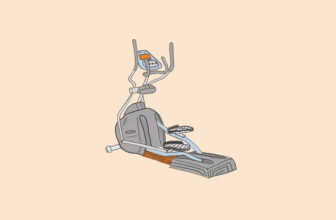Recent research suggests that our bodies benefit greatly from intermittent fasting (IF), and that exercising during a fast might not be as bad as we think. In fact, an empty stomach workout benefits our muscles, insulin regulation, and fat-burning ability.
Some studies have shown that eating carbohydrates that are easy to digest within an hour before exercise tends to allow athletes to workout longer than in the fasted state. One study found that, although there were no significant differences in heart rate and perceived exertion, men in a fasted state ran significantly shorter distances in 60 minutes than men who hadn’t been fasting.
Training in a fasted state may slightly affect your performance (competitive strength, speed or endurance).However for those who wish to lean out, lose body fat and retain/gain muscle than there are plenty benefits. One breakthrough study showed that 18-25 year old men who did intense cardio in a fasted state during a high-fat, high-calorie diet improved glucose tolerance and insulin sensitivity compared with both those who exercised without fasting and those who didn’t exercise at all. Of the three groups on the same diet, only those who exercised on an empty stomach didn’t gain weight!
The science behind how exercising in a fasted state benefits your body is not complete. We know that it has a lot to do with insulin, may involve Growth Hormone, and disrupts traditional ideas about protein digestion.
Insulin is a hormone that regulates how nutrients get used by the liver, muscle, and fat cells. Insulin production is a response to carbohydrate intake—every time you ingest carbs your body releases insulin to direct where these bits of food should go. Insulin helps manage fat storage and nutrient absorption. Insufficient sleep, lack of exercise, and overeating make our bodies less sensitive to insulin. Insulin resistance makes us more prone to diabetes, several types of cancer, and obesity.
During exercise after most of the glucose and glycogen from food have been used up, your body starts looking to fat as an energy source. After fasting, your body is especially sensitive to insulin, which it produces every time you eat. Insulin sensitivity helps your body use carbs, proteins, and fats more efficiently, promoting muscle creation and weight loss.
One explanation for why insulin resistance has become such a huge issue for us today is called the theory of thrifty genes. According to this theory, the ‘thrifty’ genotype would have been advantageous for hunter-gatherer populations, especially child-bearing women, because it would allow them to fatten more quickly during times of abundance. Fatter individuals carrying the thrifty genes would thus better survive times of food scarcity. However, in modern societies with a constant abundance of food, this genotype efficiently prepares individuals for a famine that never comes. The result of this mismatch between the environment in which the brain evolved and the modern environment is widespread chronic obesity and related health problems like diabetes. Simply put: our metabolisms thrive when we fluctuate between periods of feast and famine, spurts of exercise and rest, while an average modern life involves an abundance of food, constant eating, and being sedentary.
Another point to consider is how fasting affects the growth hormone. This controversial hormone promotes growth in children and adolescents and it can increase muscle mass and strength. A 24-hour fast can increase your production of the hormone even 20 times.
Some think that the intake of nutrients should be spread out through the day however studies suggest that eating only one or two meals per day might help build lean muscle. At the end of the day, unless you’re an athlete, your best strategy for healthy food consumption is simple: Don’t eat if you’re not hungry.
According to the ‘thrifty genes’ theory it’s impossible to damage your body by short term fasting (unless you have health issues in which case you should always consult your doctor). Intermittent fasting might reverse some of the consequences of a high-fat, high-calorie, sedentary lifestyle, and exercising in a fasted state might help your body use the food you eat later more efficiently.






